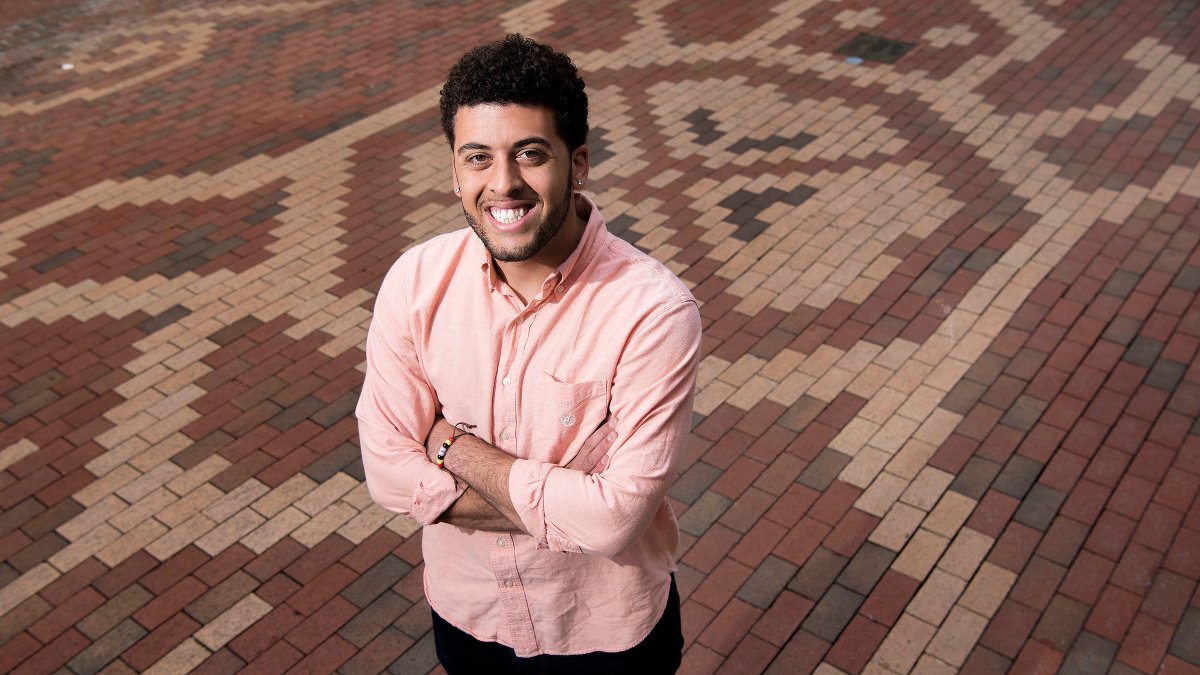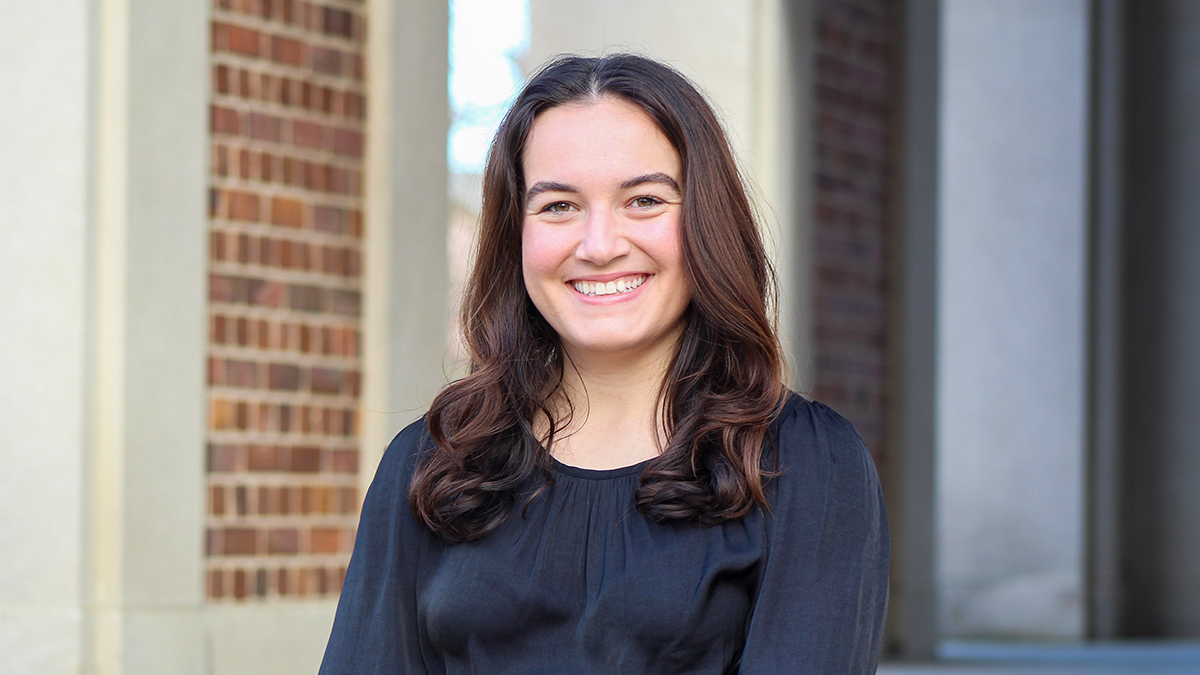A fight for recognition
Like the Indian tribe fighting for recognition, this Carolina student, often misidentified, found himself fighting to be recognized as a Lumbee.

Even as a middle-class kid growing up in Durham, Carolina senior Gavin Bell understood what it meant to be a Lumbee Indian.
He knew his family roots ran deep in Robeson County because of the stories his mother and father told about what it was like growing up in Pembroke, the tribal seat of the state-recognized Lumbee Indian Tribe of North Carolina.
He also knew, from summer visits with his cousins and grandparents, that life was harder in Robeson County – a tri-racial county of white, red and black where white people had always been on top – than it would be for him in Durham, where his father – a Carolina graduate who stills holds the record for most home runs (57) on the baseball team – is a high school teacher.
In the early 19th century, his people were known as Croatan Indians, but after the name became a racial slur, they called themselves the Indians of Robeson County, and later, the Cherokee Indians of Robeson County. It was not until 1953 that the tribe voted to identify themselves as Lumbees, taking the name from the river that runs through the county.
In 1956, Congress passed the Lumbee Act, which recognized the tribe as Indian, but withheld the full benefits of federal recognition for the Lumbees. Sixty years later, the tribe continues to fight for those benefits.
The fight for recognition
In a very different way, Bell found himself fighting to be recognized as a Lumbee, too.
In elementary school, many of his friends were Hispanic. Not only was he accepted within the group, people often assumed he must be Hispanic, too. In middle school, many of his friends were African-American. Once again, he fit right in, and at the same time, disappeared.
Whenever he “claimed” to be a Lumbee Indian, many of his friends said they had never heard of such a thing – and few believed him, even teachers.
He remembers reading – in elementary school – a book called The Only Land I Know: A History of the Lumbee Indians (The Iroquois and Their Neighbors). Written by Adolph Dial, a Lumbee Indian and professor of history at UNC-Pembroke, the book remains the standard history of the Lumbee Indian people of southeastern North Carolina who represent the largest Indian community east of the Mississippi River.
For Bell, the knowledge he gleaned from the book gave him control over the situation that his anger could not.
“When you have people challenging you every day about who you are, you have to know your stuff,” Bell said. “The big difference for an urban Indian is we have to fight every day for who we are. Teachers will challenge you and you have to know enough to convince them you are who you say you are.”
For Bell, being a Lumbee Indian continues to be an emotional tug of war between disparate worlds as he struggles to assert his identify within a neglected minority even as he tries to find his way in the bigger world.
At Jordan High School, he became a member of Project Uplift, a special program for outstanding African American, Native American, Latino/Hispanic, Asian American, low income, rural and other rising seniors from historically underserved populations to experience college life by spending two days visiting classes and participating in social and cultural activities.
Bell graduated in the top 10 percent of his high school class and toyed with the idea of listing his race as “white” just so no one could argue he was admitted only because he was a member of a minority group.
Once he was accepted at Carolina, Bell looked forward to joining the Carolina Indian Circle (CIC), and for the first time, becoming part of a Native American group in school.
While participating in Summer Bridge – a program that allowed him to take courses before the start of the fall semester – he returned to Robeson County to interview his grandmother, Gala Deese, as part of Feeling Race: A Documentary Project, a collection of personal narratives, interviews, and photographs from UNC students and their families.
As part of the CIC, he has fought against stereotypes with a campaign in the Pit called “Culture Is Not A Costume.”
He also serves as the outreach chair of CIC’s executive committee to promote American Indian Heritage Month and is a member of Unheard Voices, a Native American a capella group that combines spoken word advocacy with traditional songs to achieve a powerful expression of cultural pride and resiliency.
Empathy for all
But Bell’s personal activism to fight social injustice is not always done on the stage. Often, he said, it happens during a quiet moment with a friend.
“The conversations I’ve had with my friends about native culture have not happened until the last two or three years,” Bell said. “That’s because the first year we were just focused on being friends. After awhile, if you do it the right way, they get curious enough to ask you about how they can support you because they are your friend and care about you.”
His major is American Indian and Indigenous Studies, a multidisciplinary community of faculty, students and staff housed in the Department of American Studies.
But his perspective – and compassion for others – have grown deeper than he had once thought possible. Many of those insights have come from his experiences outside the classroom as a student counselor.
He has been involved the past four years with Young Life, a Christian ministry that reaches out to middle school, high school and college-age students. And after attending Project Uplift in high school, he has served as a student counselor with the program the past four years.
Looking back on his total experience at Carolina, Bell said, “It has been great because I have been able to reconnect with my people and I have also been able to be accepted into a group of students whose life experiences are so different from my own.
“This school has given me the tools that I need to understand and respect differences among people. That’s reassuring because, when I get out in the real world, yes, I want to help my own people, but they are not the only people who need help out there. UNC has allowed me to broaden my focus to help all people, not just one group.”




